Garden Fence Installation Crossness
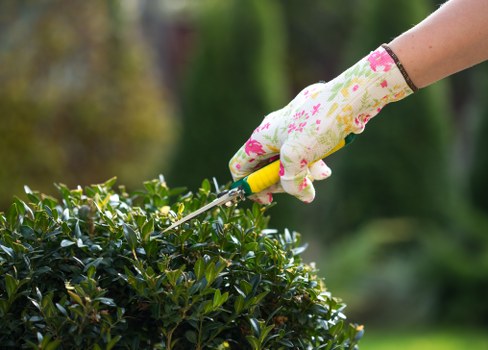
Installing a garden fence in Crossness is a fantastic way to enhance the beauty and functionality of your outdoor space. Whether you're looking to add privacy, secure your garden, or simply improve the aesthetic appeal, a well-installed fence can make a significant difference.
Crossness offers a variety of options when it comes to garden fencing. From traditional wooden fences to modern metal designs, there's something to suit every taste and budget. Understanding the different types of fences and the installation process can help you make an informed decision.
One of the first things to consider is the purpose of your fence. Are you looking to keep pets and children safe? Do you want to create a boundary that also serves as a decorative element? Identifying your needs will guide you in selecting the right materials and style.
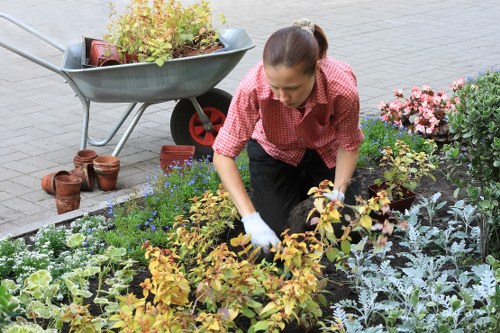
Choosing the Right Material
When it comes to garden fence installation in Crossness, the material you choose plays a crucial role in the longevity and appearance of your fence. Here are some popular options:
- Wood: Wooden fences offer a classic look and can be customized with paint or stain. They provide good privacy but require regular maintenance to prevent rot and damage.
- Metal: Metal fences, such as wrought iron or aluminum, are durable and low-maintenance. They can add a touch of elegance to your garden.
- Vinyl: Vinyl fences are resistant to weather and pests. They come in various styles and colors, making them a versatile choice.
- Composite: Composite fences combine wood and plastic materials, offering the appearance of wood with enhanced durability.
Each material has its pros and cons, so it's important to weigh them against your specific needs and preferences.
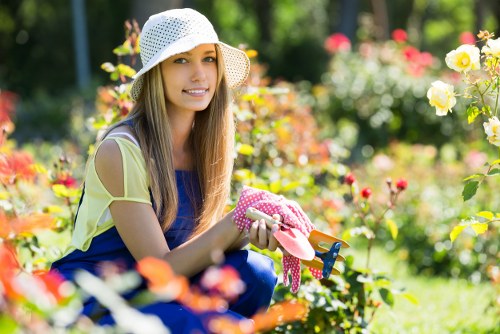
Design Considerations
The design of your garden fence should complement the overall style of your property. Here are some design elements to consider:
- Height: The height of your fence will affect both privacy and the amount of light in your garden. Common heights range from 4 to 6 feet.
- Style: Choose a style that matches your home's architecture. Traditional picket fences suit cottage-style homes, while sleek metal designs complement modern properties.
- Color: Select a color that enhances your garden's natural tones or matches your house's exterior.
- Gate: Incorporate a gate that is wide enough for easy access and blends seamlessly with the fence design.
Taking these design factors into account will ensure your fence not only serves its functional purpose but also adds to the visual appeal of your garden.
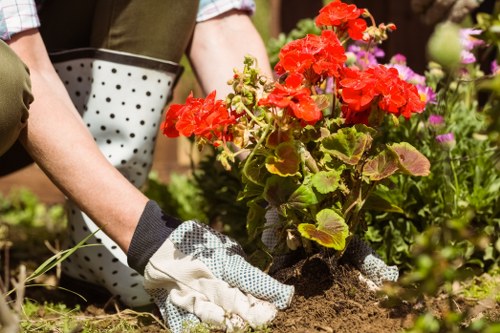
Installation Process
Proper installation is key to ensuring your garden fence stands the test of time. Here's a step-by-step guide to the installation process:
- Planning: Measure the perimeter of your garden to determine the amount of fencing material needed. Mark the locations for fence posts, ensuring they are evenly spaced.
- Preparing the Site: Clear the area of any obstacles such as rocks, roots, or debris that might interfere with the installation.
- Setting Posts: Dig holes for the fence posts, typically 2-3 feet deep. Place the posts in the holes, ensuring they are level and plumb, then fill with concrete for added stability.
- Attaching Panels: Once the posts are set, attach the fence panels or rails according to the chosen design. Ensure each panel is securely fastened.
- Finishing Touches: Install gates and any additional decorative elements. Apply paint or stain if working with wood to protect the fence from the elements.
Following these steps will help you achieve a sturdy and attractive garden fence.
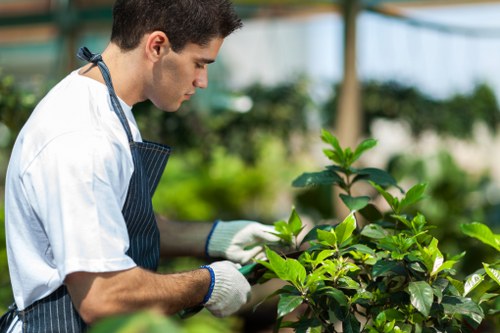
Maintenance Tips
Maintaining your garden fence is essential for preserving its appearance and functionality. Here are some maintenance tips:
- Regular Cleaning: Remove dirt, debris, and mildew from your fence by washing it with a mild detergent and water.
- Inspect for Damage: Periodically check for any signs of wear, such as loose boards, rust spots on metal fences, or cracks in vinyl.
- Repair Issues Promptly: Address any damage as soon as possible to prevent further deterioration. Replace damaged sections or apply protective coatings as needed.
- Protective Coatings: Apply paint, stain, or sealant to wooden fences to protect against moisture and UV damage.
- Trim Vegetation: Keep plants and trees trimmed to prevent them from putting pressure on the fence or causing damage over time.
By following these maintenance practices, your garden fence will remain in excellent condition for years to come.
Local Relevance: Surrounding Areas to Crossness
Garden fence installation in Crossness benefits from the proximity to several nearby areas, each offering unique characteristics:
- Barking Located just east of Crossness, Barking is known for its vibrant community and green spaces, making it a prime area for garden enhancements.
- Dagenham To the northwest, Dagenham provides a mix of residential and commercial zones, where durable fences are highly sought after.
- Leslie: South of Crossness, Leslie offers beautiful river views, and aesthetically pleasing fences can enhance waterfront gardens.
- Beckenham This area boasts historic homes and lush gardens, where traditional fence styles are particularly popular.
- Belvedere Close to Crossness, Belvedere's suburban charm makes it an ideal location for bespoke garden fences.
- Tooting Known for its lively atmosphere, Tooting residents often seek stylish and low-maintenance fencing solutions.
- Wanstead Offering a mix of urban and natural landscapes, Wanstead is a great area for eco-friendly fencing options.
- Abbey Wood With its growing community, Abbey Wood is a key area for innovative and modern fence designs.
- Canning Town As a hub for development, Canning Town residents are looking for fences that combine security with style.
- Sutton Known for its leafy neighborhoods, Sutton is ideal for installing fences that blend seamlessly with natural surroundings.
- Woolwich With its rich history and evolving infrastructure, Woolwich is a prime area for both traditional and contemporary fencing solutions.
Each of these nearby areas to Crossness has its own unique needs and preferences when it comes to garden fencing, allowing professionals to cater to a diverse clientele.
Benefits of Professional Installation
While DIY fence installation is possible, hiring a professional offers several advantages:
- Expertise: Professionals have the knowledge and experience to handle various materials and challenging installations.
- Time-Saving: A professional installation is typically completed faster and more efficiently than a DIY project.
- Quality Assurance: Professionals ensure that the fence is installed correctly, adhering to industry standards.
- Warranty: Many professional installers offer warranties, providing peace of mind in case of future issues.
- Access to Resources: Professionals have access to a wide range of materials and tools, ensuring the best possible outcome for your fence.
Choosing a professional installer can lead to a more durable, attractive, and reliable garden fence.
Cost Considerations
The cost of garden fence installation in Crossness varies based on several factors:
- Material: The type of material you choose significantly impacts the overall cost. For example, wood is generally less expensive than metal or vinyl.
- Length and Height: The size of the area to be fenced will affect the amount of materials needed and, consequently, the cost.
- Design Complexity: Intricate designs or custom features will require more labor and materials, increasing the price.
- Labor: Hiring professionals will add to the cost, but ensures a quality installation.
- Permits and Regulations: Depending on local regulations in Crossness, you may need permits for certain types of fences, which can add to the overall cost.
It's important to obtain multiple quotes and consider all these factors to budget appropriately for your garden fence installation.
Permits and Regulations
Before installing a garden fence in Crossness, it's essential to be aware of local permits and regulations:
- Height Restrictions: There may be limits on how high your fence can be, especially if it's adjacent to a public road or pathway.
- Boundary Fences: If the fence is on a shared boundary, you may need to get permission from your neighbor.
- Materials: Certain materials might be restricted in specific areas, particularly near historic sites or natural reserves.
- Setbacks: Regulations may dictate how far your fence must be from property lines or buildings.
Consulting with local authorities or a professional installer can help ensure that your garden fence complies with all relevant regulations.
Environmental Impact
Choosing eco-friendly materials and practices for your garden fence installation can reduce your environmental footprint:
- Sustainable Wood: Opt for wood sourced from sustainably managed forests to minimize environmental impact.
- Recycled Materials: Fences made from recycled metals or plastics help in reducing waste and conserving resources.
- Natural Finishes: Use non-toxic stains or paints to protect your fence without harming the environment.
- Longevity: Selecting durable materials reduces the need for frequent replacements, conserving resources over time.
Incorporating these environmentally conscious choices can make your garden fence both beautiful and sustainable.
Enhancing Your Garden's Aesthetic
A well-chosen fence can serve as a focal point or complement the existing features of your garden:
- Greenery Integration: Incorporate climbing plants or vertical gardens into your fence design for a lush, natural look.
- Decorative Elements: Add latticework, carvings, or ornamental posts to enhance visual interest.
- Color Coordination: Match the fence color with other elements in your garden, such as pathways, flower beds, or house exterior.
- Lighting: Install lighting along the fence to create ambiance and highlight garden features during the evening.
By thoughtfully integrating these elements, your garden fence can significantly contribute to the overall beauty and charm of your outdoor space.
Security Benefits
Beyond aesthetics, a garden fence provides important security benefits:
- Deterrence: A sturdy fence acts as a deterrent to potential intruders, enhancing the safety of your property.
- Boundary Definition: Clearly defined boundaries prevent unauthorized access and protect your privacy.
- Child and Pet Safety: Ensure that children and pets remain within the safe confines of your garden.
- Theft Prevention: Secure fencing makes it more difficult for thieves to access your garden and any valuable items within.
Implementing a well-constructed fence enhances the security of your home and provides peace of mind.
Customizing Your Fence
Customization allows you to tailor your garden fence to your specific needs and preferences:
- Height and Length: Adjust the dimensions to suit your space and functional requirements.
- Materials and Colors: Choose materials and colors that reflect your personal style and complement your garden.
- Design Features: Add unique design elements such as decorative posts, finials, or finials to make your fence stand out.
- Functional Additions: Incorporate features like built-in trellises, planters, or integrated lighting for added functionality.
Customizing your fence ensures that it perfectly fits your garden's aesthetic and meets your practical needs.
Choosing the Right Installer
Selecting a reputable and experienced installer is crucial for the success of your garden fence project:
- Experience: Look for installers with a proven track record in garden fence installation.
- Reviews and References: Check customer reviews and ask for references to gauge the quality of their work.
- Licensing and Insurance: Ensure that the installer is properly licensed and insured to protect against any potential issues.
- Portfolio: Review previous projects to see if their style aligns with your vision.
- Communication: Choose an installer who communicates clearly and listens to your needs and preferences.
Taking the time to select the right professional will help ensure a smooth installation process and a high-quality finished fence.
Cost-Saving Tips
Here are some strategies to save money on your garden fence installation in Crossness:
- Plan Ahead: Accurate measurements and a clear plan can prevent costly mistakes and changes during installation.
- Material Choices: Opt for cost-effective materials that still meet your durability and aesthetic requirements.
- DIY Preparation: Handle some preparation tasks yourself, such as clearing the area or gathering materials, to reduce labor costs.
- Bulk Purchasing: Buying materials in bulk can often lead to discounts and lower overall costs.
- Off-Season Installation: Scheduling installation during the off-peak season may result in lower labor costs.
Implementing these cost-saving measures can help you achieve your garden fencing goals without breaking the bank.
Conclusion
Garden fence installation in Crossness is a worthwhile investment that enhances both the functionality and beauty of your outdoor space. By carefully selecting the right materials, design, and installer, you can create a fence that meets your needs and adds value to your property.
Remember to consider local regulations, maintenance requirements, and environmental impact when planning your project. With proper planning and execution, your garden fence will provide lasting benefits for years to come.
Frequently Asked Questions
1. How long does it take to install a garden fence in Crossness?
The installation timeline depends on the fence's size, material, and complexity. On average, a standard garden fence can be installed within a few days to a week.
2. Do I need a permit for garden fence installation in Crossness?
Whether you need a permit depends on local regulations. It's advisable to check with the Crossness local authorities or your installer to determine if a permit is required.
3. What is the most durable fencing material for gardens?
Metal fences, particularly those made from aluminum or wrought iron, are known for their durability. Vinyl and composite materials also offer long-lasting performance with minimal maintenance.
4. Can I install a garden fence myself?
While DIY installation is possible, hiring a professional ensures that the fence is properly installed, adheres to local regulations, and meets quality standards.
5. How do I maintain my garden fence?
Regular cleaning, inspecting for damage, applying protective coatings, and keeping vegetation trimmed are key maintenance practices to ensure your fence remains in good condition.